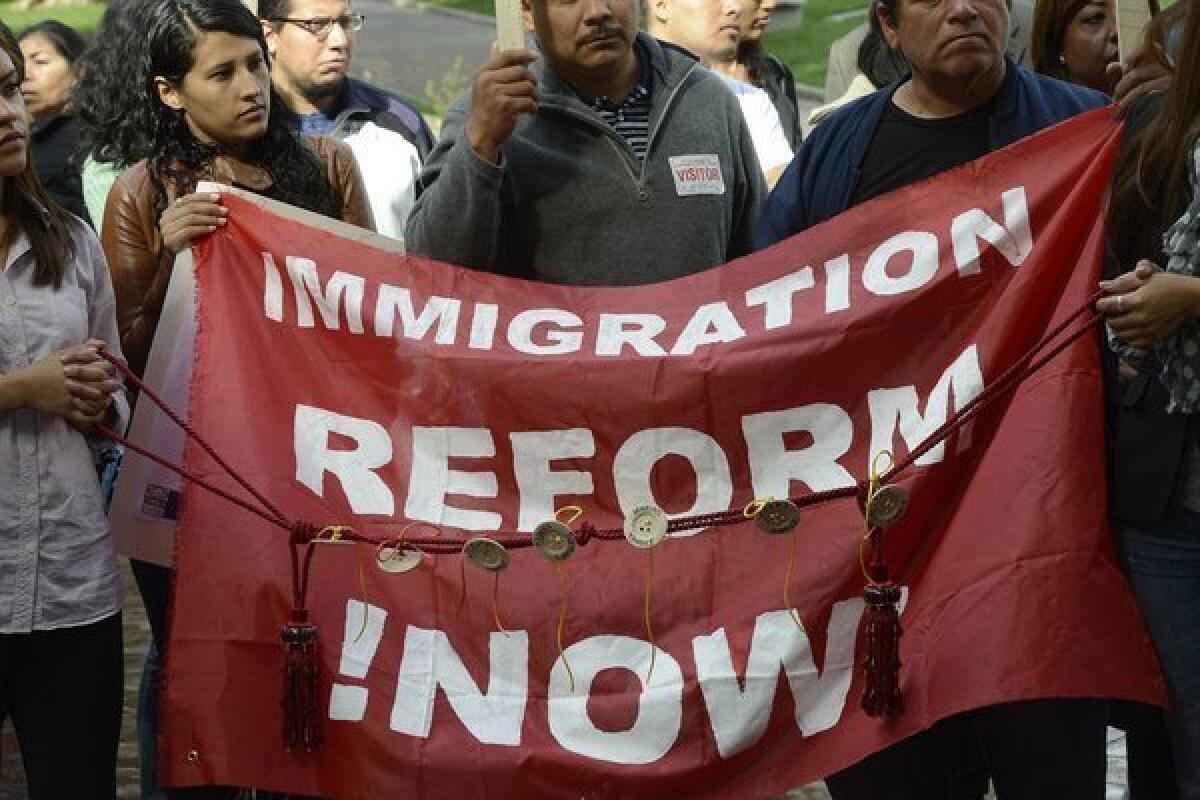Who stands to lose more if immigration reform fails?

As President Obama’s second term gets underway, there is a growing debate about whether comprehensive immigration reform will remain a priority given the ambitious agenda he has outlined, including the need to address the budget, tax reform, climate change and gun violence.
So far, the White House continues to say that immigration reform is on the front burner. More important, the administration is acting as if it is a priority. This week, for example, administration officials met with key members of the Congressional Hispanic Caucus to discuss how to push forward legislation. Also this week, Sen. Patrick Leahy (D-Vt.), who heads up the Senate Judiciary Committee, announced that the committee would probably take up the issue next month. And already, some bipartisan discussions are underway.
Outside Washington, business and religious leaders say they consider immigration reform a top legislative priority and are launching a grass-roots drive to build support. Yet some advocates and observers remain skeptical that federal lawmakers will actually move forward with new laws.
Why? Well, for starters because any type of effort to overhaul the immigration system will require support from moderate Republicans, such as Sen. Marco Rubio (R-Fla.). He concedes that his party needs to improve its standing with Latino voters, who overwhelming cast their ballots for Obama, even in states that traditionally vote for a Republican candidate. But just how far Rubio and others are willing to go on the most vexing aspect of immigration reform remains a question.
Rubio and other moderates have signaled their support for legislation that would provide legal status to so-called Dreamers, or young undocumented immigrants who were brought to the United States unlawfully as children. And those same lawmakers will likely back plans to provide more visas for high-skilled workers and foreign students who earn advanced degrees from U.S. universities in math, science and engineering. But those GOP lawmakers may fall short of supporting legislation that would provide a path to citizenship for the estimated 11 million undocumented immigrants already here. The party’s conservative base has traditionally opposed such efforts because some argue it’s little more than amnesty that rewards immigrants who broke the rules.
But I disagree with those who believe immigration reform is once again doomed. I think both parties understand they would pay a high price with Latino voters.
The GOP isn’t interested in committing political suicide. It’s leadership is familiar with the Census Bureau’s projections that clearly indicate Latinos are the fastest-growing voting bloc, and that the demographic shift is taking place in states long held by Republicans. GOP leaders also know that if immigration reform fails, Democrats will blame them for it during the next election cycle.
And nearly the same thing can be said for Democrats. Latinos are unlikely to be forgiving of the president or the party that continues to break their promise to overhaul a broken immigration system.
ALSO:
More to Read
A cure for the common opinion
Get thought-provoking perspectives with our weekly newsletter.
You may occasionally receive promotional content from the Los Angeles Times.










